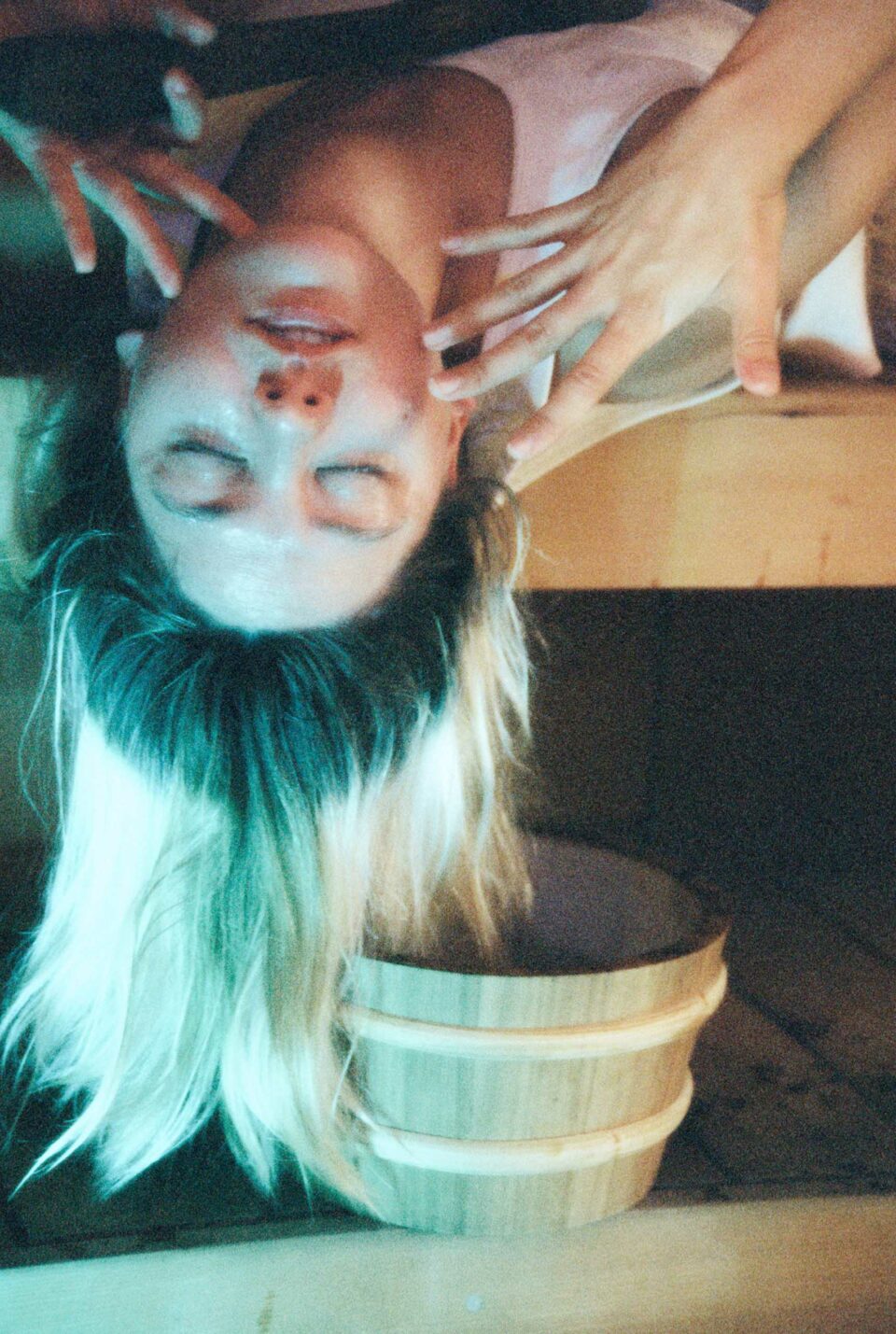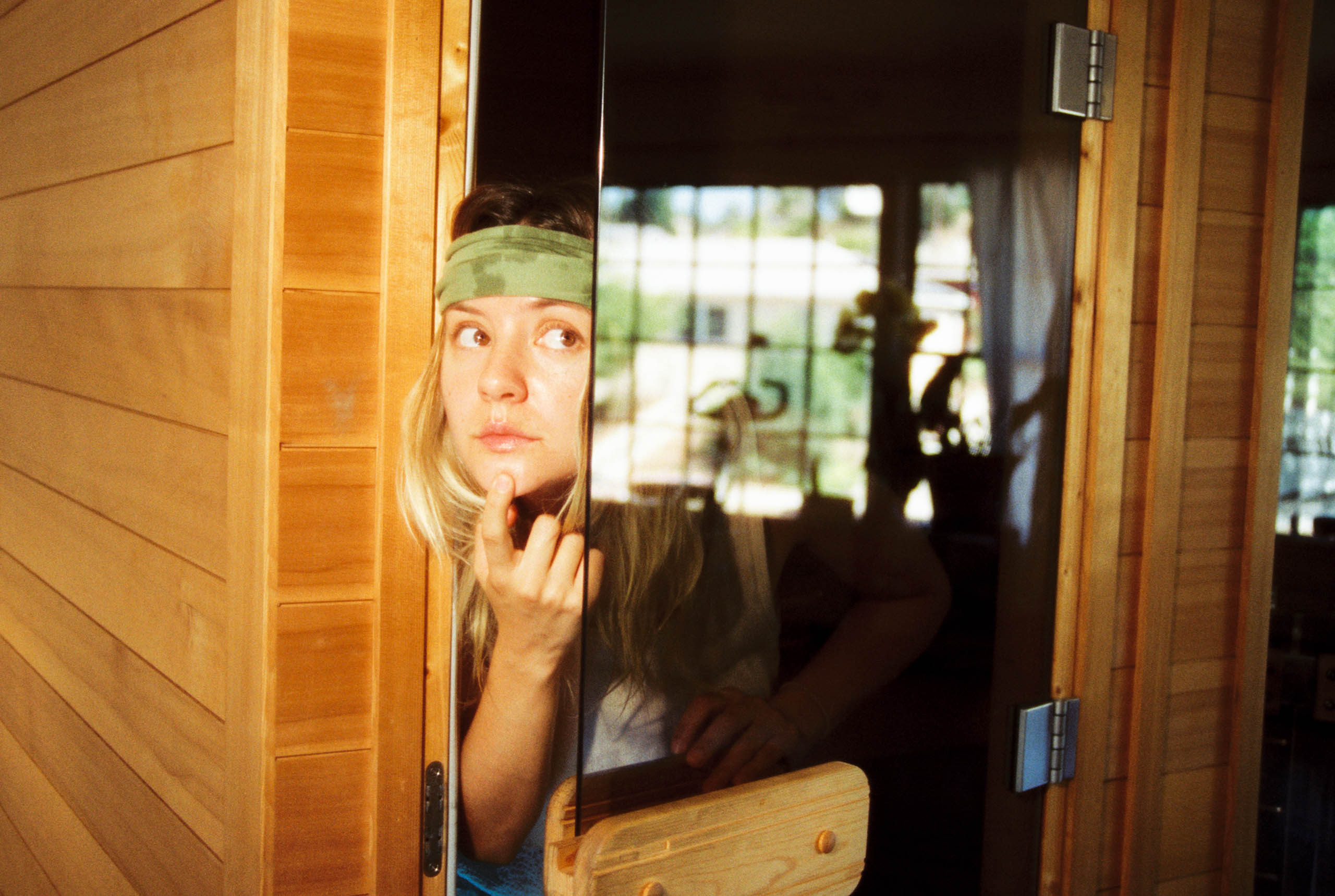Throughout her long-gestating debut album, Dora Jar sets out to answer the lone existential question of “Who am I?” The creation of No Way to Relax When You Are on Fire took the alt-pop star on a very literal journey across Alaska, Poland, and California, yet the songwriter (who grew up moving back and forth between the East and West Coast, with time spent in Poland and London as well) also embarked on a metaphorical journey of self-discovery as the resulting collection of songs welcomes the audience inside her mind.
Dora’s journey truly began when she was thrust into the spotlight a few years ago after Billie Eilish offered her a supporting slot on the first leg of her Happier Than Ever world tour. Since that big breakthrough moment, the artist has gained a reputation as one of the most innovative and exciting prospects in the thriving alt-pop scene, and after a trilogy of EPs, her debut album is a huge step forward in her rapid ascent to stardom.
With the album out now via Island Records, we caught up with Jar to discuss the process of putting together the pieces that wound up being No Way to Relax When You Are on Fire.
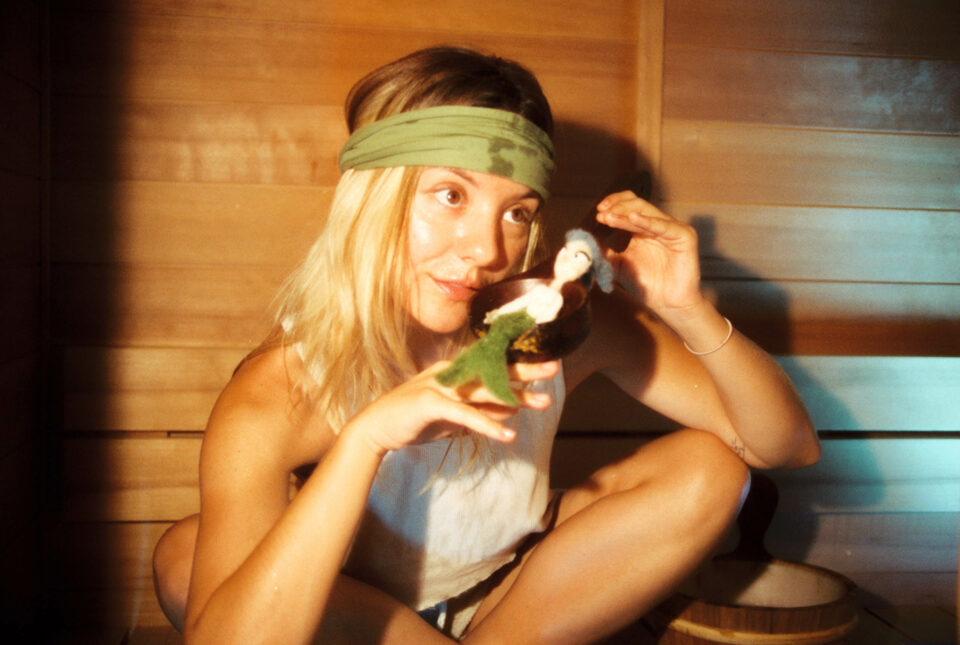
I love the album title. What does it mean to you?
It means a lot of different things. There’s a positive feeling to being on fire, spiritually, when you’re warm on the inside and feeling confident and hot-shit and doing exactly what you want to do. There’s also the total discomfort of burning and being under a spotlight that you don’t want to be under and not being ready for the fire. It was such a visceral line. I play around with metaphors a lot in my music, but once in a while this blatant lyric comes into my head and I feel like saying it.
The album was created between Poland, Alaska, and California—what was the thought process behind this?
It mirrors how it felt like my life began, moving in significant chapters. My life began in New York City, I grew up in Northern California, then I went to a boarding school in Connecticut when I was 14. Then I moved to Boston for two months to try out for music school and miserably failed, then Poland, New York City, and London. I’ve really had a hard time grounding and finding a sense of wanting to root.
The writing process for the album began in Poland at the beginning of 2023. I went because I had family there and thought it would be a good place to have solitude, as I don’t really have friends [there] so there’s not much distraction. But at the same time, I wouldn’t go totally insane with cabin fever and could have dinner with family and other excursions. [The album] took me to a lot of places.
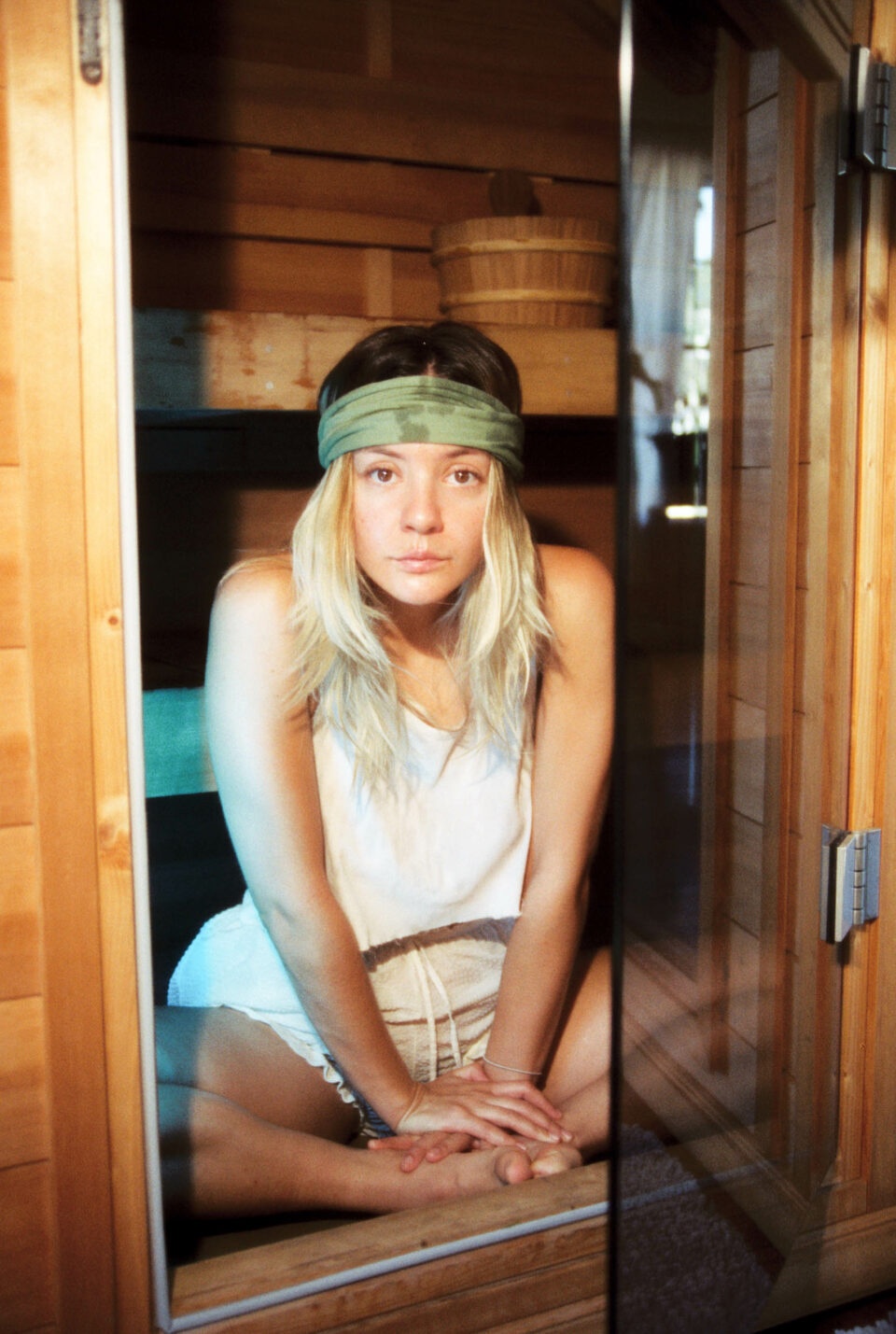
“It feels like a very parallel thing, making a puzzle [and making an album]. You get into this flow state as your hand reaches for a random piece and you know exactly where it goes, but you’re not sure why.”
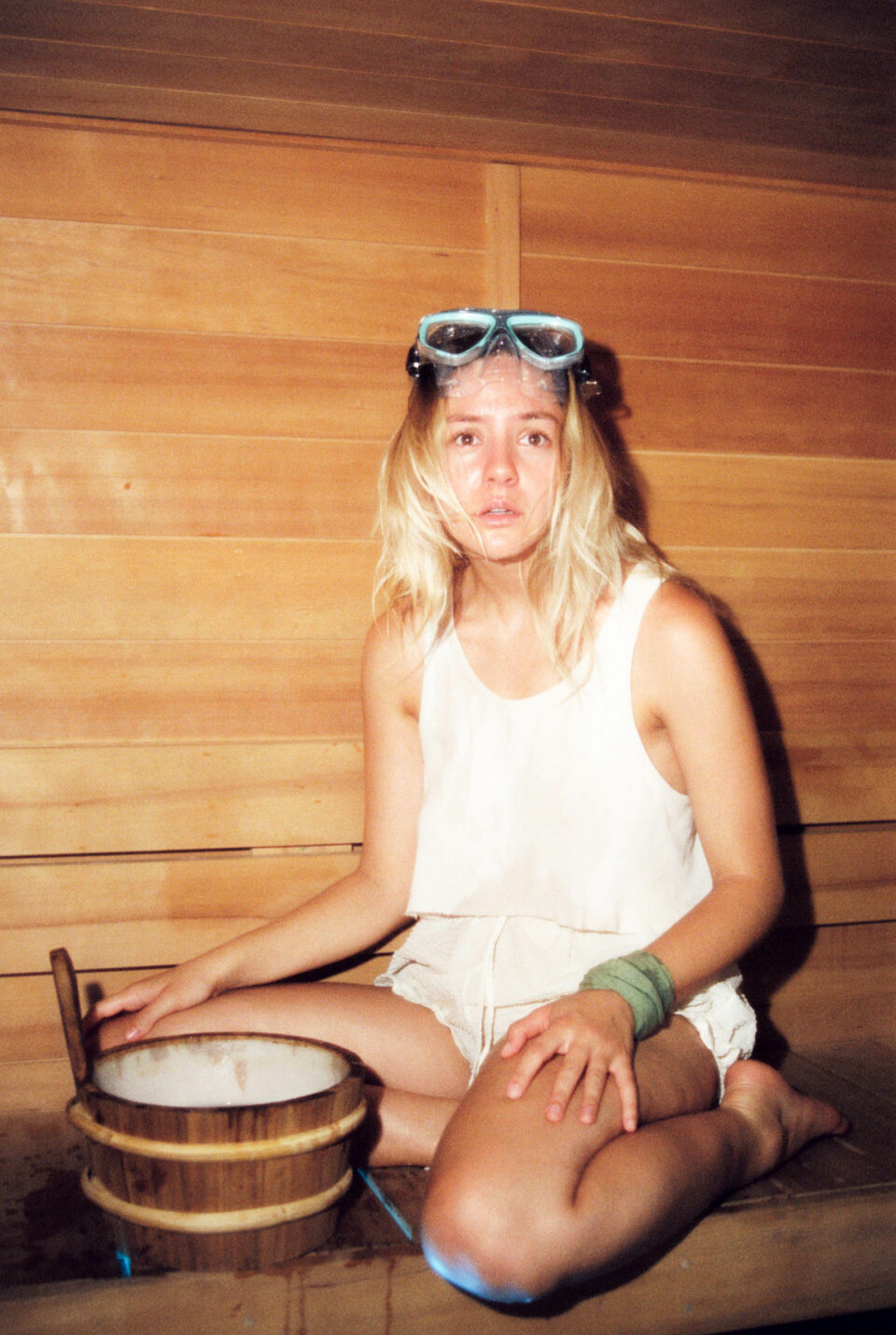
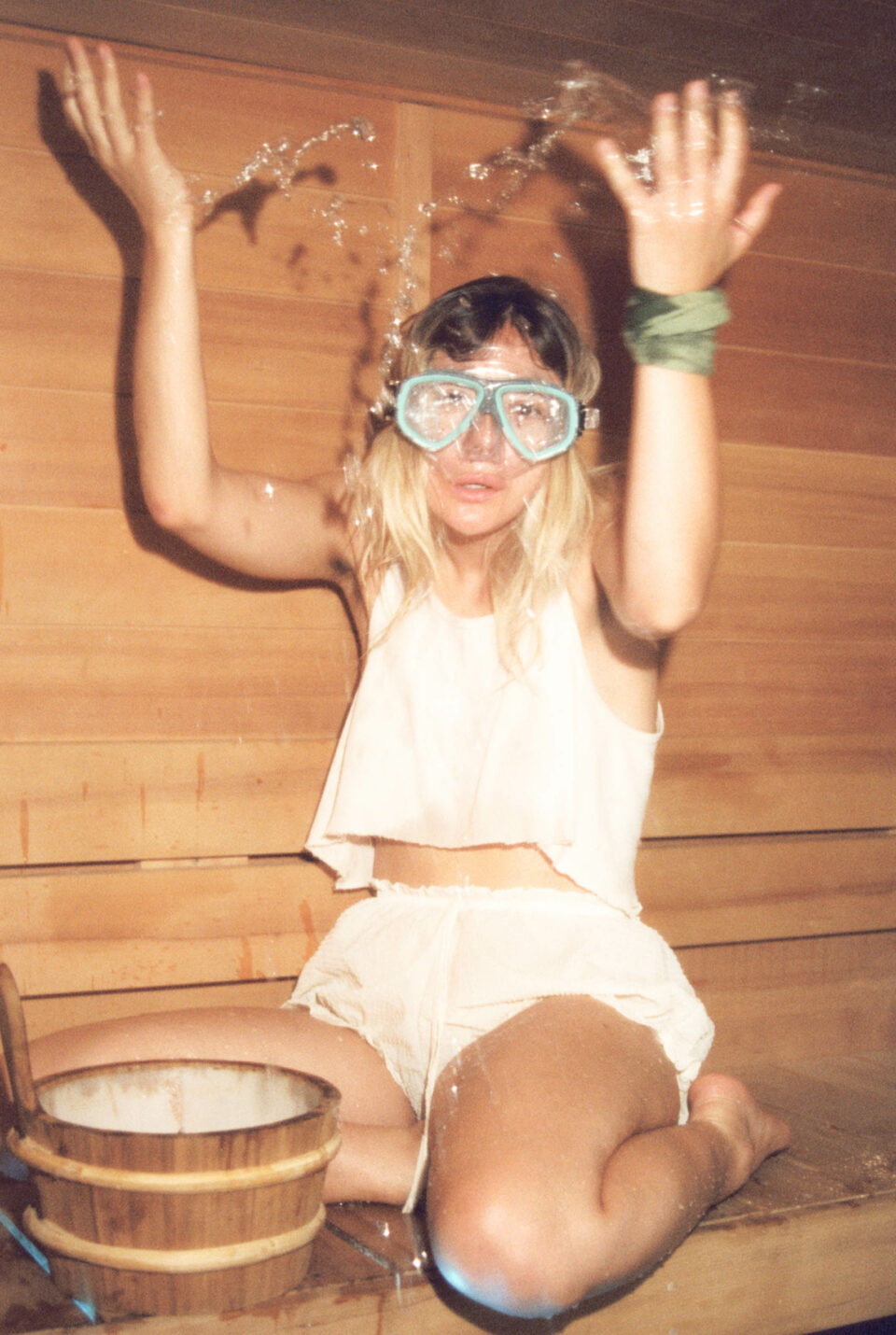
You’ve compared this album to a “collage”—did you feel that each location added something unique?
Different stages of the writing process were encapsulated by all the various places. Poland was a genesis where a lot of demos were formed—“Behind the Curtain,” “Timelapse,” etc. A lot of those were just me on my Ableton making small, glitchy versions of these final tracks. Alaska was when I started getting really excited, because I love working with Ralph Castelli. He’s such a good friend, but also the perfect collaborator for me, because we come at music from a similar place but totally different references and hear things differently, and that opens my mind. Alaska was about giving these songs new life and meaning. Then, we pretty much finished everything in Downtown LA, and that felt very full-circle because I collaborated with people from my first EP.
When was your vision for the album complete?
I got really into puzzles in the past year and a half. I was finishing this giant puzzle that I was doing on my own in the studio during the finishing of “No Way to Relax” and “Behind the Curtain”—all these songs that were close, but not totally done. And by the time I put the final puzzle piece in, it all made sense in my mind. It feels like a very parallel thing, making a puzzle. You get into this flow state when puzzling as your hand reaches for a random piece and you know exactly where it goes, but you’re not sure why or how you know that.
“Dreams are a washing machine for our brains to make sense of the day or prepare for the day to come. I’m pretty consistently astounded by the visuals I get in my dream mind.”
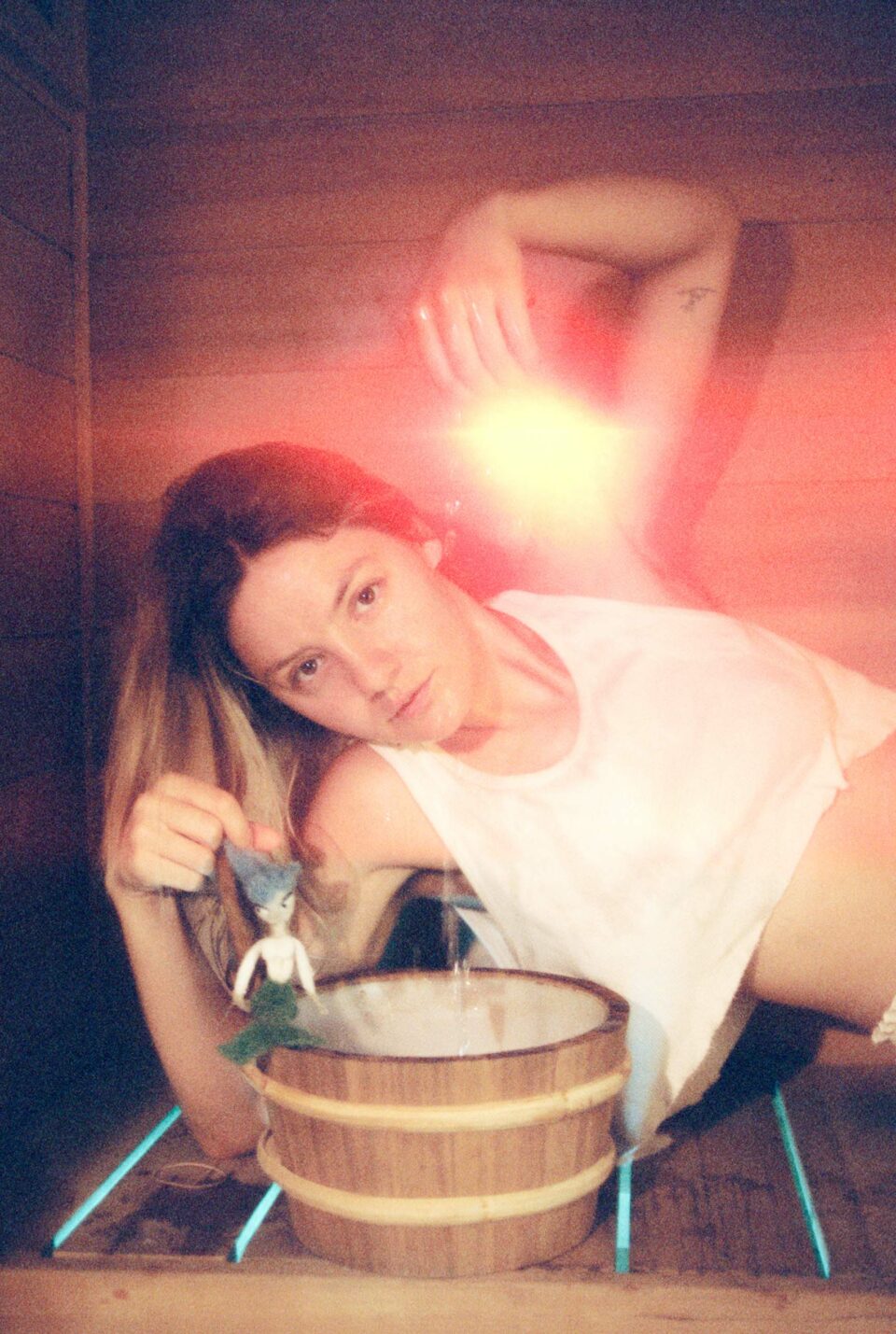
How big of a role do dreams play in your songwriting?
Dreams are so important and they influence more than we realize. Dreams are a washing machine for our brains to make sense of the day or prepare for the day to come. I’m pretty consistently astounded by the visuals I get in my dream mind. Whether it’s a song idea or a visual concept, dreams play a huge role in my excitement around creating.
I sometimes record dreams as voice memos—I’m often too tired to turn the light on and write, so I talk it into my phone. That’s led to some funny discoveries. I always go back to my voice memos when I’m on a plane. Yesterday I was listening back to some very silly things that my mind made up.
For the song “Debbie Darling,” I had a dream where I was playing hide and seek with myself. I was hiding in really dumb places like a curtain, a cardboard box, or a pool of water. That dream came to me at a time when I was beginning to really understand what self-compassion meant, and shortly after that dream I wrote “Debbie Darling” about embracing the side of me that I wanted to hide, or I didn’t think is worthy of being seen or loved.
I can imagine songwriting helps put these big themes into focus.
It’s definitely cathartic. If I didn’t have writing, I’d be very confused. My baseline experience of reality is confusion, but I also have a high tolerance for confusion and nonsense. I really love freestyling a story that makes no sense. I used to do that when I babysat kids—I’d make stories up off the top of my head and practice that part of my imagination. It’s what I loved about The Beatles growing up, with songs like “I Am the Walrus.” There’s the lyric, “Sitting on a cornflake, waiting for the van to come.” Who knows what that means? It feels so true, but we don’t know why!
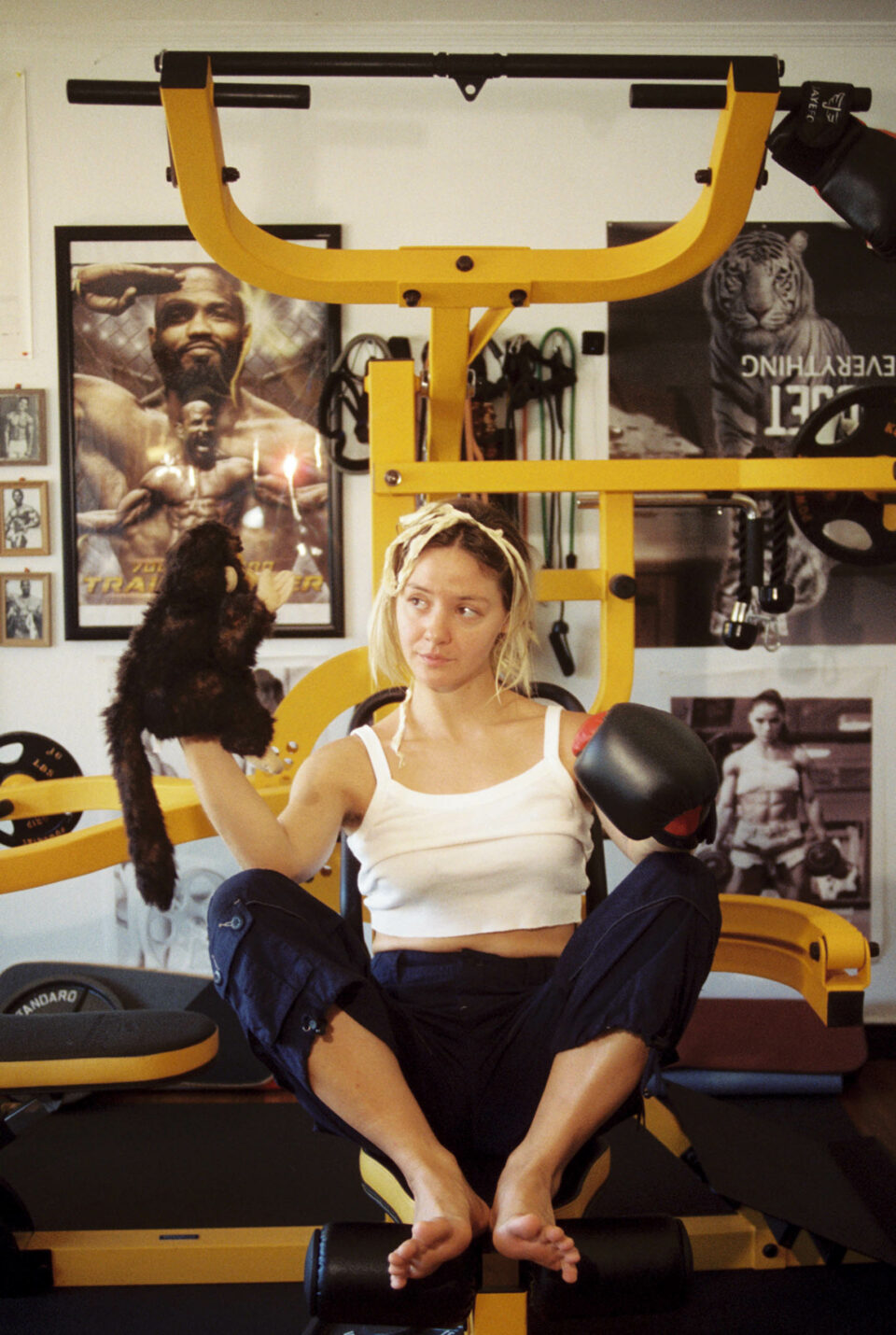
“It was a very intense come-up—I felt like I skipped a lot of steps. It felt like divine intervention, as I was playing in arenas on my eighth show.”
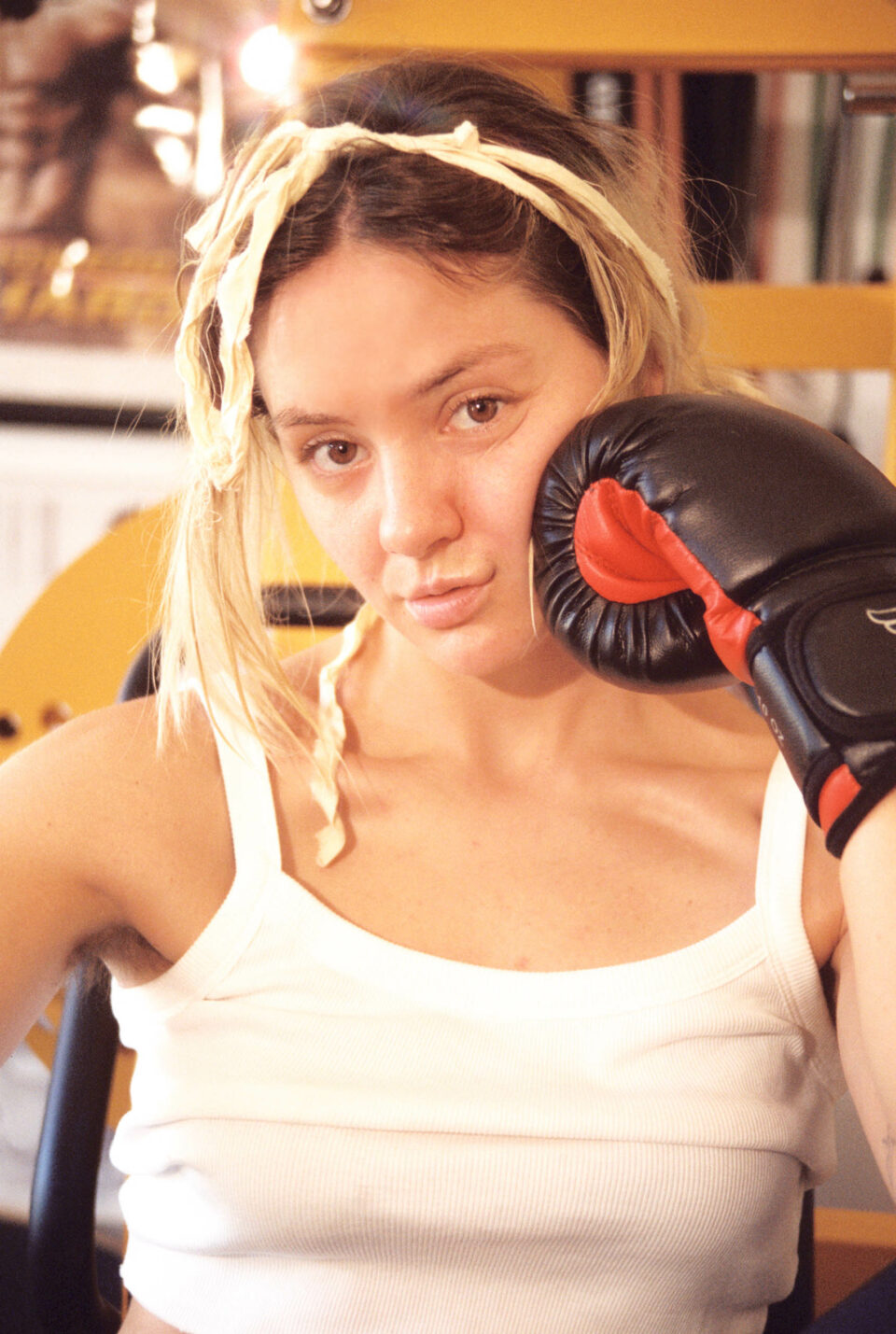
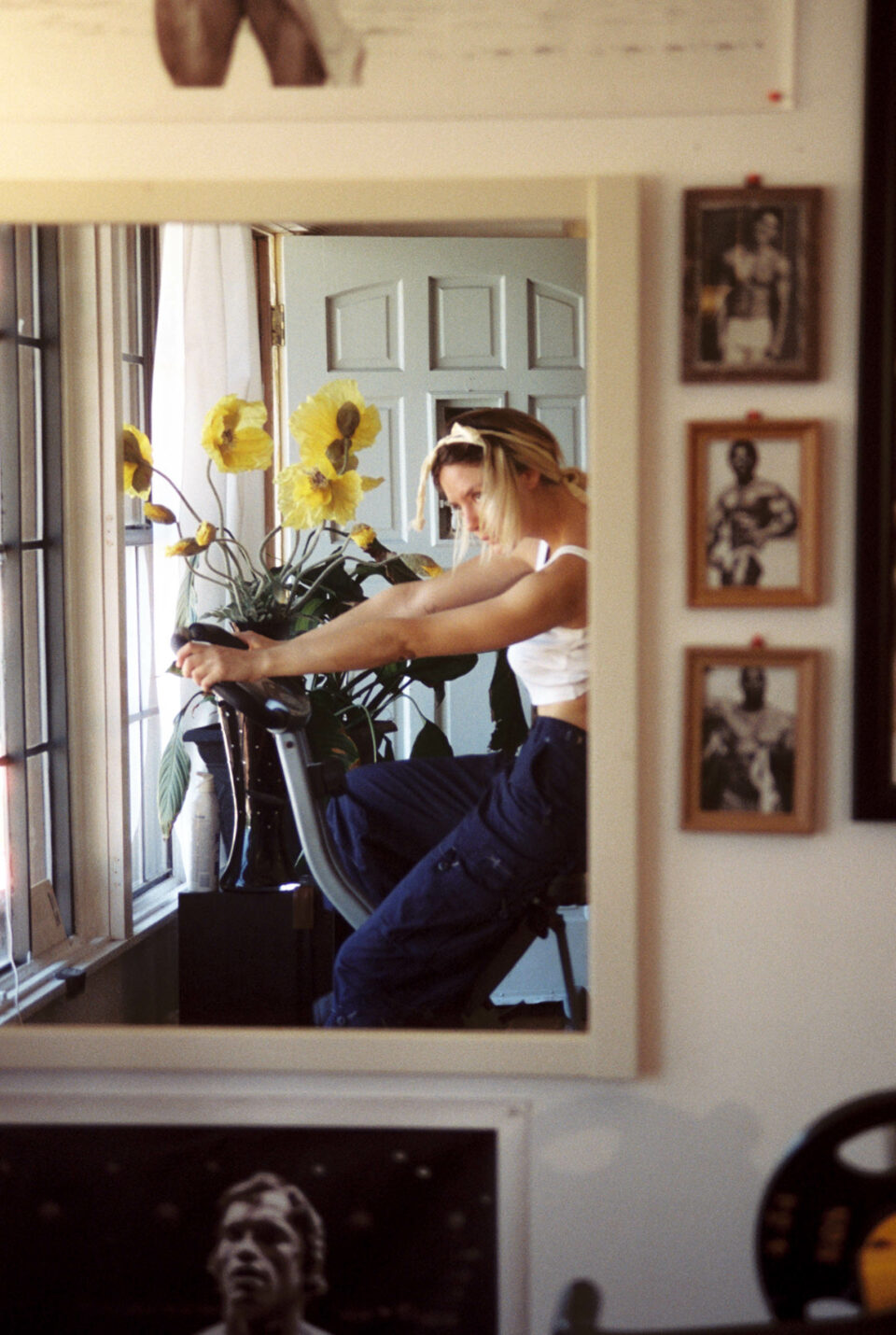
Maybe it’s because I’d just listened to your cover of T. Rex’s “Cosmic Dancer” before listening to the album, but it feels like there’s a strong influence of glam rock. What music did you grow up listening to?
I heavily grew up on The Beatles—Magical Mystery Tour was huge, and Revolver was another favorite. I also loved listening to the original Broadway cast recording of Into the Woods. I feel like maybe the glam rock thing speaks to my delight in drama, and that really comes from musicals—specifically Stephen Sondheim musicals, because I think they’re better and smarter than the other ones. Foo Fighters were huge, too. That was my first concert and made me realize that I needed to play guitar. Anything I make will be hugely subconsciously Foo Fighters because of my obsession with guitar and dissonant chords and driving picking patterns.
You’ll be heading on tour in the fall, what can people expect from your headlining shows?
People should expect to feel surprised. I really want to create a space that leans into mystery and clowning. I don’t do a lot of physical rehearsal and I don’t have a choreographer, so every night I’m doing something different and interacting differently with each audience.
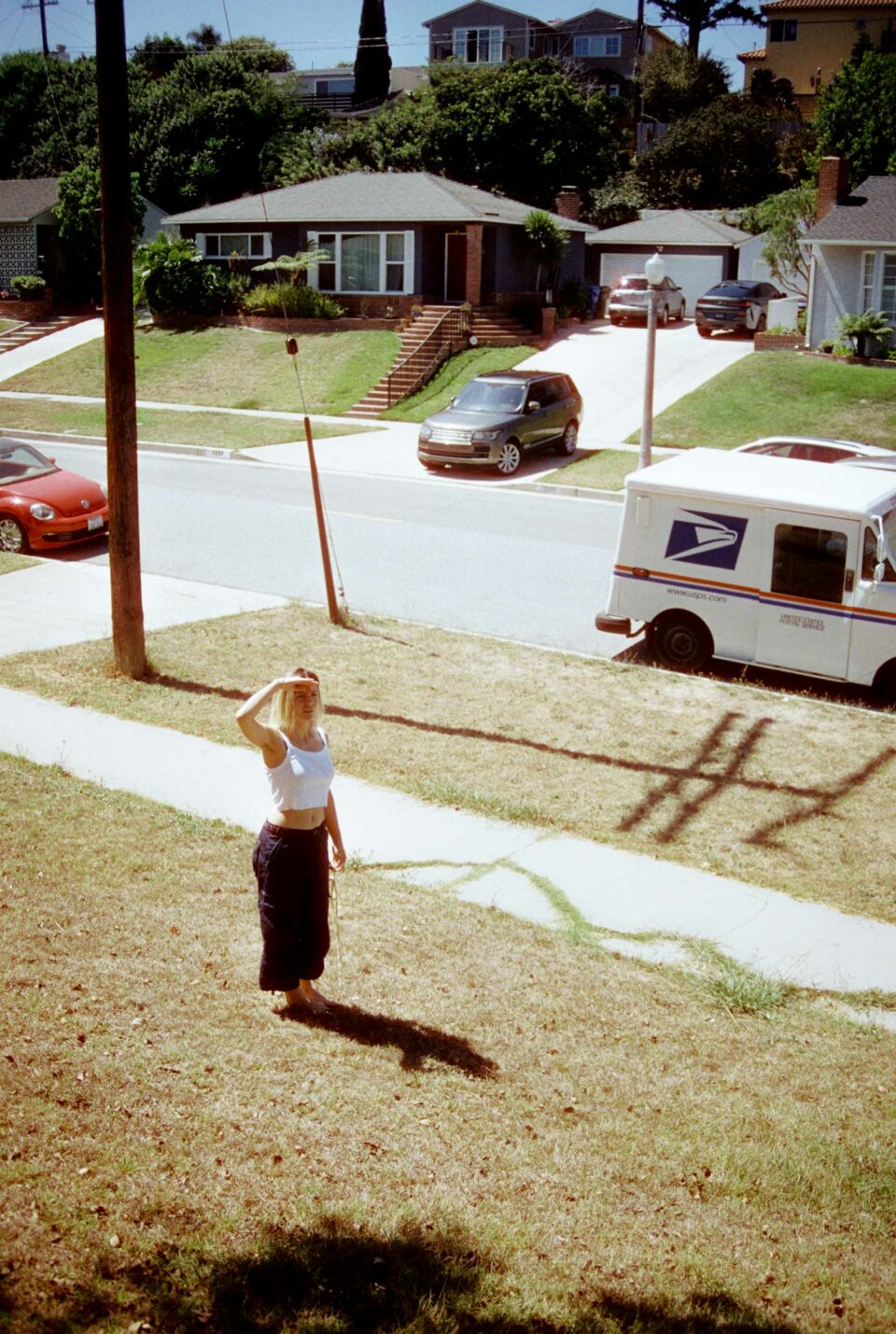
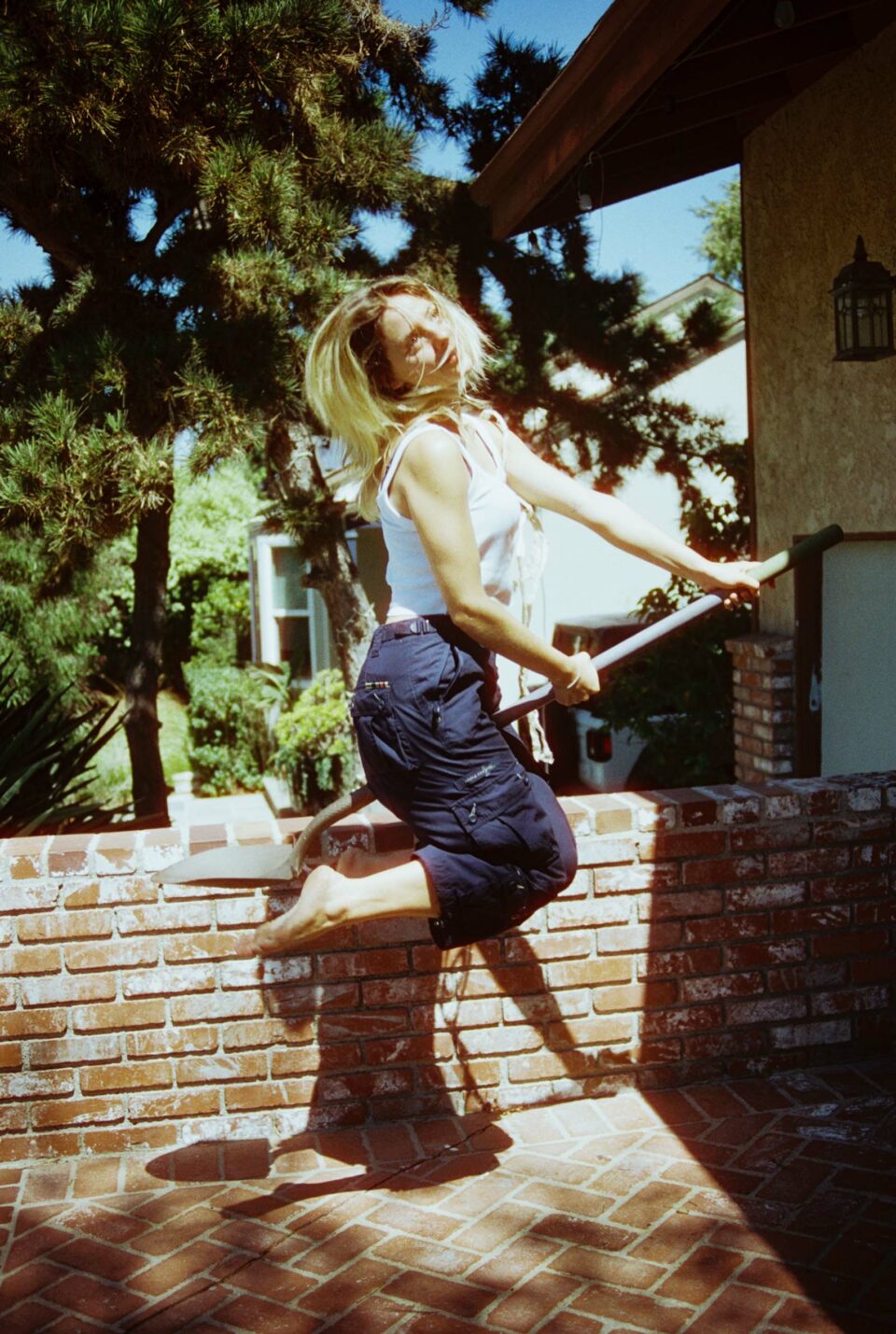
Did supporting Billie Eilish on tour give you imposter syndrome as you were performing at big arenas as a new artist?
It didn’t feel like imposter syndrome. It was a very intense come-up—I felt like I skipped a lot of steps. It felt like divine intervention, as I was playing in arenas on my eighth show. I accumulated all of these Billie fans, and that’s so wonderful because they were so open to receiving an unknown artist.
Does releasing your first album and booking headlining shows help you address that feeling of skipping a lot of steps?
This album feels like a new beginning. It’s been a long time since that big beginning, and now I feel like I’ve learned a lot about performance and shows and how I want to live as an artist and what I want to share from that. I’m going to do it in a scenario that’s a lot more intimate than those opening gigs, but also maybe more powerful for me because I can really connect on a human level. FL
